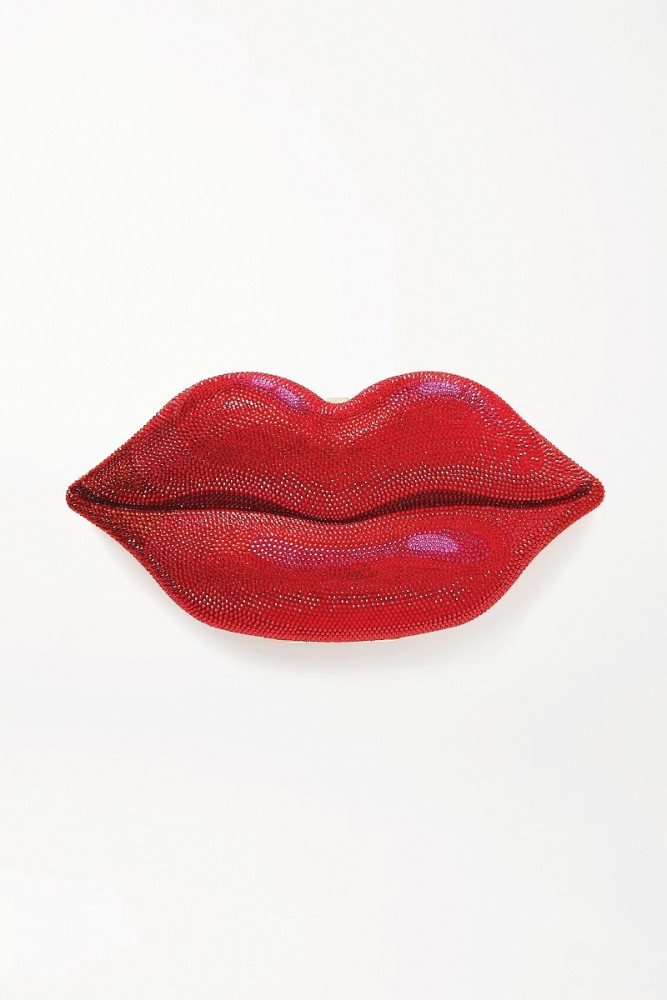Leiber’s signature clutches—covered in over 10,000 European crystals, and sculpted into surprising shapes from penguins and pineapples to basketballs and roller skates—are the antithesis of quiet luxury. While their visual impact is big, peek inside and everything from the seams to the hardware of the bags is appointed.“I knew from the beginning what I was going to do, I was going to make the best.” Leiber once said, acknowledging that each of her designs would consist of top tier materials and leathers. The bags went on to secure a place in pop culture thanks to cameos on Sex and the City, and collaborations with design houses and artists, all while capturing the affection of a lengthy list of celebrity fans including Rihanna, Blake Lively, Jennifer Lopez and Beyoncé (who carried a custom black panther clutch to the Grammys).
The designer’s journey to becoming a beloved American luxury brand wasn’t an easy one, professionally or personally. Leiber’s father suggested she explore handbag design after noticing his daughter’s interest in the purses he gifted his wife when he returned from business trips. An outlier in a male-dominated industry, Leiber learned the trade at a Jewish-Hungarian handbag company, where she stayed until the war reached her doorstep. A Holocaust survivor, Leiber and her family were forced to live in a ghetto during the Nazi occupation of Hungary. After Budapest was liberated, Leiber (then Judith Peto) met her husband, an American soldier named Gerson Leiber. She had been making bags and selling them to Americans to support herself and the two struck up a conversation. After they married, they moved to the United States where Gerson became a well-known painter and sculptor, and Leiber worked for various handbag makers before going out on her own. After 30 years in business, she sold her company in 1993 and retired several years later. Leiber died in 2018, at the age of 97.







